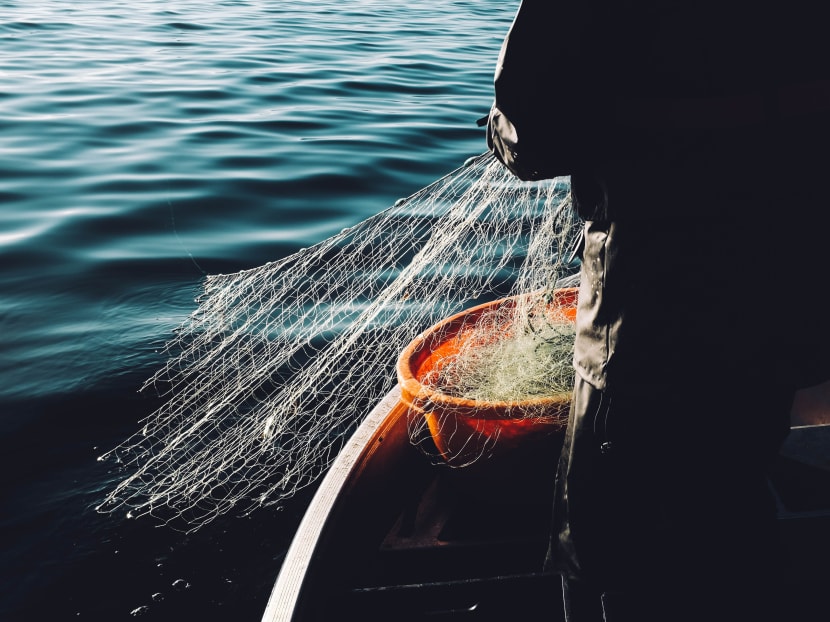Man fined S$2,800 for fishing, littering at Sungei Buloh Wetland Reserve
SINGAPORE — A 59-year-old fish farm worker was fined S$2,800 on Monday (Sept 13) after being caught illegally catching fish at Sungei Buloh Wetland Reserve and throwing his cigarette butt into the water.

Ab Wahab Ahamad was spotted using a net to catch fish in an area where fishing is not permitted, the court heard.
- An NParks volunteer spotted Ab Wahab Ahamad fishing illegally at Sungei Buloh Wetland Reserve
- Wahab also threw a cigarette butt into the water
- He was fined S$2,800 but has until October to make full payment
SINGAPORE — A 59-year-old fish farm worker was fined S$2,800 on Monday (Sept 13) after being caught illegally catching fish at Sungei Buloh Wetland Reserve and throwing his cigarette butt into the water.
Ab Wahab Ahamad, a Singaporean, pleaded guilty to two charges under the Parks and Trees Regulations — including entering a nature reserve that was closed to the public — and a third charge under the Parks and Trees Act.
The court heard that on Dec 28, 2019, a volunteer from the National Parks Board (NParks) spotted Wahab in a boat in a river channel at the nature reserve. He was collecting fish from a drift net that he had set up there.
The area was off-limits to the public and fishing is not allowed within the nature reserve.
The NParks volunteer observed Wahab collecting fish from 8.49am to 9.15am, as well as throwing his used cigarette butt into the waters instead of keeping it for disposal in a litter bin.
The volunteer then reported the matter to NParks.
When Wahab was interviewed, he admitted to entering Sungei Buloh Wetland Reserve and setting up the drift net without approval from the Commissioner of Parks and Recreation.
Investigations further revealed that he had previously stationed himself at Kranji Reservoir Park, near the nature reserve, and fished along the coast for many years.
He worked at the closest floating fish farm about 150m away in the Straits of Johor, adjacent to Pulau Buloh. He claimed that the farm’s manager had given him permission to store his boat and other fishing equipment.
Mr Packer Mohammad, who prosecuted the case for NParks, told the court that as a fish farm worker, Wahab should have known not to enter the river channel between Pulau Buloh and the rest of the nature reserve.
NParks had also previously advised him to keep out of that area.
District Judge Lorraine Ho allowed him to pay S$1,000 on Monday, before he has to fork out the remaining S$1,800 next month.
Those convicted of using a hunting device to capture animals within any nature reserve or national park can be jailed for up to six months, fined up to S$50,000, or be punished with both.
Those convicted of littering within a national park, nature reserve or public park can be fined up to S$5,000.
For entering a nature reserve that was closed to the public, Wahab could have been fined up to S$2,000.
In an advisory provided to TODAY, NParks said that members of the public can fish at designated sites that include those at Changi Beach Park and Changi Boardwalk, East Coast Park, Labrador Nature Reserve, Pasir Ris Park, Pulau Ubin, Sembawang Park, West Coast Park and Woodlands Waterfront Park.
NParks also encouraged people to use sustainable fishing methods, warning that net fishing and the use of wire mesh traps are not allowed in areas it manages.
“Fish traps and nets tend to be more indiscriminate, and when lost in the sea, will continue to trap and kill fish and other marine life. Nets that settle onto the seabed could also entangle corals or other bottom-dwelling organisms, and can smother them to death,” it said.
NParks added that it encourages “catch-and-release” fishing, where fish that will not be eaten are released back into the sea.
“This is especially for juveniles, and endangered and threatened species. Responsible fishing practices will help us maintain our rich biodiversity and will (allow) the population to continue to thrive.”








